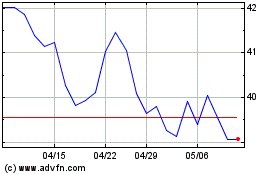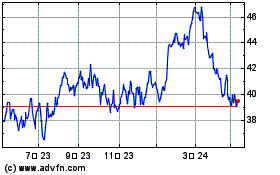Australian independent lawmaker Andrew Wilkie on Thursday said
he will back the center-left Labor Party, a move that delivers some
momentum to Prime Minister Julia Gillard's bid to form a minority
government after an inconclusive national election in late
August.
With Wilkie's support, Gillard's Labor now controls 74 seats in
the 150-seat lower house of Parliament, where governments are
formed, against 73 seats for the center-right coalition led by Tony
Abbott. Either side needs 76 seats at a minimum to govern.
Treasurer Wayne Swan said in a speech that a minority government
would pose a tough test, but "I have no doubt...we could have a
successful and effective three year Labor government with the
support of the cross benches."
Ultimately though, while betting odds firmed in Labor's favor
after Wilkie pledged his support, the question of who will form
government rests with three conservative-leaning independents who
are still considering who to back.
The trio, Bob Katter, Robert Oakeshott and Tony Windsor, has
been negotiating as a bloc, though Katter could break from the pack
Friday when he is due to release his personal wish list to both
major parties. Windsor meanwhile told Sky TV the three could yet
make a decision separately on which party to support.
"Now it is time to actually sit down and make a decision and
I'll be doing some more homework tomorrow and maybe going home for
a while over the weekend and returning on Monday to make a decision
hopefully," Windsor said.
Oakeshott told Sky TV he will look to make a decision early next
week, while Katter said on the same program that he has yet to make
up his mind.
The three independents are likely to determine the fate of one
of the most divisive policies of recent times: A proposal by Labor
to levy a new tax on mining company profits.
The tax proposal was vigorously opposed by industry and played a
role in the sudden ouster of Kevin Rudd as the country's prime
minister in June. The coalition is promising to scrap the tax if it
takes power.
Oakeshott and Windsor broadly support the idea of a profit-based
mining tax that replaces state-based royalties schemes, as does the
one Greens lower-house lawmaker, Adam Bandt, who gave the Labor
Party his formal backing Wednesday.
Katter opposes the tax, while Wilkie believes the current
proposal is flawed and should be the subject of further industry
consultation.
Andrew Forrest, chief executive of iron ore miner Fortescue
Metals Group Ltd. (FMG.AU), jetted into Canberra Thursday to lobby
the independents over the tax. Forrest is a vocal opponent of a
deal Gillard reached with the country's major miners in July--just
days after replacing Rudd in a party coup--which cut the planned
headline rate of the tax to 30% from 40% and excluded all minerals
except iron ore and coal.
He argues that deal favored the big three--BHP Billiton Ltd.
(BHP), Rio Tinto Ltd. (RTP) and Xstrata PLC (XTA.LN)--at the
expense of smaller miners who still need to attract large amounts
of capital to fund their expansion.
"We thought we'd use the opportunity (Thursday) to explain our
position on the mining tax" to independent lawmakers, a Fortescue
spokesman said.
"There needs to be tax reform, but the process of how the mining
resource rent tax came about, we don't agree with. It needs to be
taken off the table in its present form," he added.
Labor won Wilkie's backing Thursday with a commitment to address
one of his key issues: problem gambling.
In a move that could have implications for the earnings of
wagering firms like Tatts Group Ltd. (TTS.AU) and Aristocrat
Leisure Ltd. (ALL.AU), Gillard told reporters she'd agreed to seek
a federal solution to gambling reforms that could see it assume
responsibility from state governments for setting some wagering
legislation.
Wilkie is only offering to back a Labor government on issues of
confidence and supply--that is, the day-to-day business of
government. He told reporters Thursday he will assess individual
policies, such as the mining tax, on their merits.
The Tasmania state-based independent also qualified his support
for Labor by saying should Abbott take power "he would not find me
obstructionist."
In a blow to the coalition's bid for office, however, Abbott was
Thursday forced to defend the cost of the coalition's election
policies after Treasury modelling found a multi billion-dollar hole
in its estimates.
Independent lawmakers indicated the blunder had shaken their
confidence in the coalition to manage Australia's A$1.3 trillion
economy, with Windsor calling on the coalition to explain the
"black hole."
"I was surprised by the figure when I saw it," Oakeshott said on
Sky. "Somewhere up to a A$10.5 billion miss is a big miss."
Joe Hockey, treasury spokesman for the coalition, stood by the
coalition's own estimates, describing the Treasury shortfall as a
"difference of opinion."
Both parties have promised to return Australia's budget to
surplus by the year beginning July 1, 2012. But the Treasury
figures undermine a key campaign pitch of the coalition--that
budget surpluses would always be higher under a coalition
government than under Labor.
Treasury estimates Australia could record an underlying budget
surplus of A$2.61 billion in fiscal 2012-13 under a coalition
government, compared with an upwardly revised A$3.84 billion under
Labor.
-By Rachel Pannett, Geoffrey Rogow and Enda Curran Dow Jones
Newswires; +61-2-6208-0901; rachel.pannett@dowjones.com;
geoffrey.rogow@dowjones.com; enda.curran@dowjones.com;
Aristocrat Leisure (ASX:ALL)
過去 株価チャート
から 5 2024 まで 6 2024

Aristocrat Leisure (ASX:ALL)
過去 株価チャート
から 6 2023 まで 6 2024
